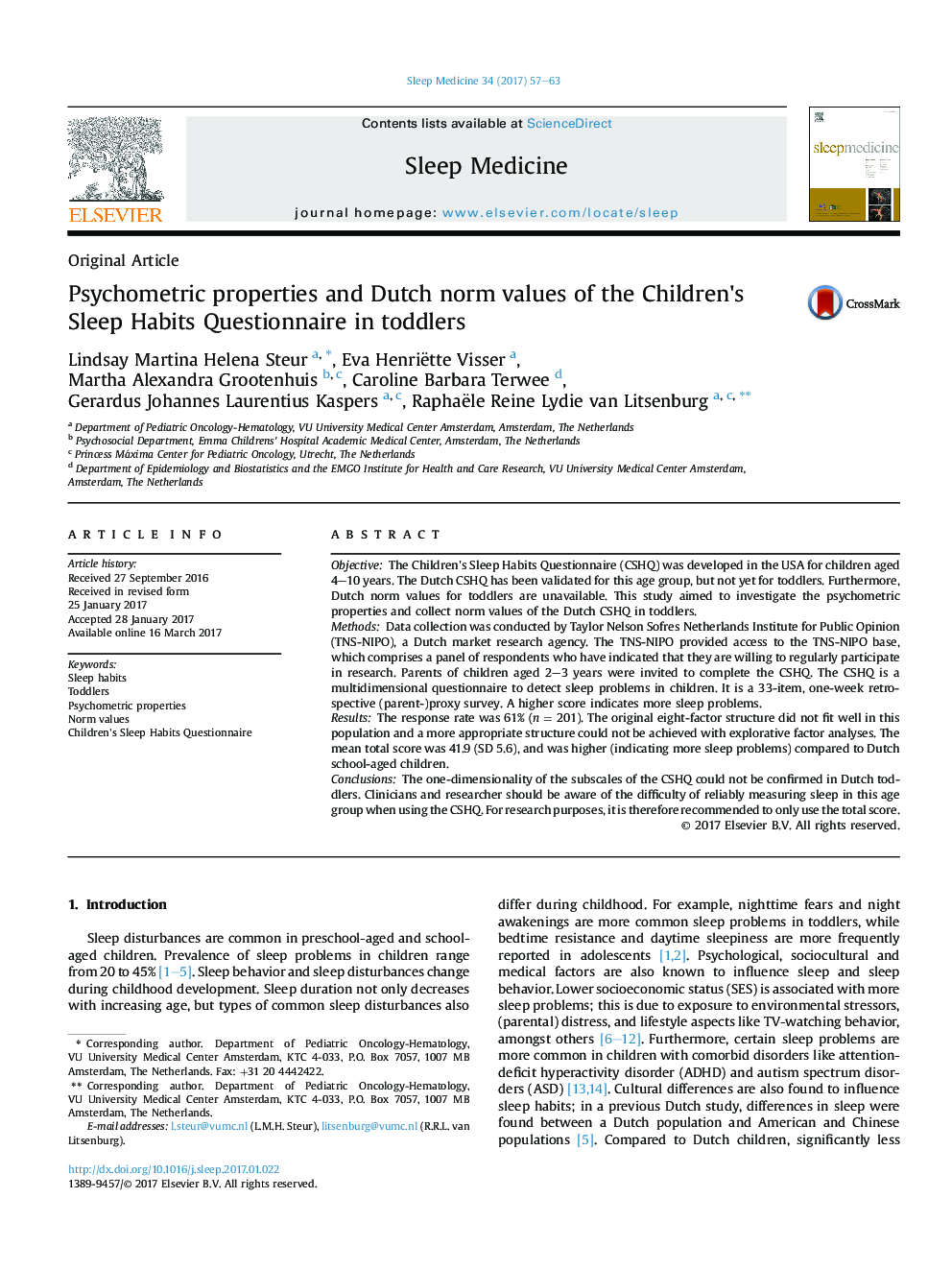| کد مقاله | کد نشریه | سال انتشار | مقاله انگلیسی | نسخه تمام متن |
|---|---|---|---|---|
| 5643701 | 1586475 | 2017 | 7 صفحه PDF | دانلود رایگان |
- The original Children's Sleep Habits Questionnaire (CSHQ) eight-factor structure could not be replicated in Dutch toddlers.
- For research purposes, only the use of the total score is recommended in toddlers.
- The total CSHQ score offers the opportunity to assess overall sleep problems in toddlers.
- A psychometrically sound, multidimensional instrument is still lacking for toddlers.
- Additional qualitative research should focus on developing a new instrument for toddlers.
ObjectiveThe Children's Sleep Habits Questionnaire (CSHQ) was developed in the USA for children aged 4-10 years. The Dutch CSHQ has been validated for this age group, but not yet for toddlers. Furthermore, Dutch norm values for toddlers are unavailable. This study aimed to investigate the psychometric properties and collect norm values of the Dutch CSHQ in toddlers.MethodsData collection was conducted by Taylor Nelson Sofres Netherlands Institute for Public Opinion (TNS-NIPO), a Dutch market research agency. The TNS-NIPO provided access to the TNS-NIPO base, which comprises a panel of respondents who have indicated that they are willing to regularly participate in research. Parents of children aged 2-3 years were invited to complete the CSHQ. The CSHQ is a multidimensional questionnaire to detect sleep problems in children. It is a 33-item, one-week retrospective (parent-)proxy survey. A higher score indicates more sleep problems.ResultsThe response rate was 61% (n = 201). The original eight-factor structure did not fit well in this population and a more appropriate structure could not be achieved with explorative factor analyses. The mean total score was 41.9 (SD 5.6), and was higher (indicating more sleep problems) compared to Dutch school-aged children.ConclusionsThe one-dimensionality of the subscales of the CSHQ could not be confirmed in Dutch toddlers. Clinicians and researcher should be aware of the difficulty of reliably measuring sleep in this age group when using the CSHQ. For research purposes, it is therefore recommended to only use the total score.
Journal: Sleep Medicine - Volume 34, June 2017, Pages 57-63
